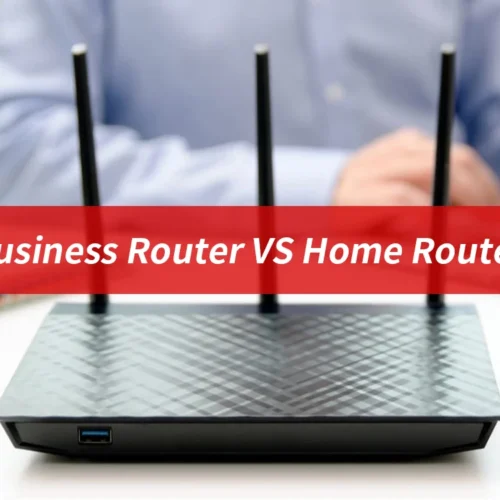Introduction:
Routers are one of the most essential components of networks to maintain the best transmission. They are also called the police of network traffic because of their importance in the communication system. In other words, if the network is the brain of the communication system, then the router is the heart of it.
Routers are also designed to fulfill the demand for ever-increasing applications. There are several types of routers in an endless array. This article will discuss the wireless router VS wired router in detail.
Wired Router VS Wireless Router
Wired routers are old technology compared to wireless, but they can handle large amounts of data. The wired routers transmit data in packets through cable at both ends receive and send data. The wireless router transmits data without any cable to the device through radio signals.
Further differences are listed below:
Wired routers

- Wired routers transmit data in packets which.
- These routers use the port to connect directly to the computer or other devices through a modem.
- It has more speed as data enters directly into the device.
- Wired routers support Network Address Technology (NAT) to connect multiple devices using one IP address.
- If the numbers of user increase system become completed with many wires.
- It’s good for one-station devices like desktop computers.
Wireless routers

- Wireless routers transmit radio signals which are decoded by receiver devices.
- They transmit data directly to devices without the need for any cable.
- It’s comparatively slower, but new wireless routers can support 2.4 to 5 GHz of data.
- Connection setup is easy as it doesn’t require cables.
- The number of users is unlimited if the router is strong enough.
- It’s good for non-stationary devices like laptops, mobiles, and others.
- WLAN: Wireless Local Area Network established by the wireless router.
wireless router VS wired router: Advantages and disadvantages
Both routers have advantages and disadvantages, and these are discussed below.
Wired Router:
The advantage of a wired router is that it’s faster than a wireless router. As already mentioned, that is a wired connection. The wire goes into the system, and there is no loss of signals, and it transmits data at its full capacity. The wired router is also reliable as there is no interruption of the signals.
The disadvantages of the wired connection are that it is costly and requires a lot of care to maintain its cables. If the problem in the cable occurs, it disrupts the signals. Another disadvantage is that users can not move from one place to another place due to the involvement of cables.
Wireless Router:
One of the biggest advantages of the wireless router is that it doesn’t involve cables and can be connected anywhere in the range. The second important advantage of the wireless router is that it’s cheaper and easy to configure the connection. The third one is that many devices can be connected from one router, whereas a wired connection has a specific number of ports.
The disadvantages of wireless connections are that they have low speeds compared to wired routers. Although new and advanced routers have much higher speeds, they are not commonly used. The second disadvantage includes that it is less secure to the wired connection.
Which is Better, a Wireless VS Wired router?
Both routers are important but depend upon their applications. One is suitable for a particular application, and the other is not. Therefore, looking at some crucial aspects before deciding which is better is better.
Speed
When it comes to the speed of the wireless VS wired router, the wired performs very well. This is because the wired router is direct to the system via a cable. It’s reliable, and there is not any fluctuance of signals. Whereas wireless has low speed, and their speed decreases if the device moves a little away from the router.
Cost
The wireless router is cheaper to install and maintain as it does not require cables. The cables increase the cost of wired connections. If any cables are damaged, they require replacement, which increases the cost. On the other hand, wireless routers transmit without extra cables, saving a lot of money.
Convenience
If you want to add a new device, the wireless network is very convenient, and easy to add an established setup. You need to purchase an extra cable to connect your device to wired connections. Furthermore, wired connections restrict your movement and are meant to be used at specific places due to wire. Wireless transmit radio signals, and you can use them anywhere within the specific range of the router.
Hence, the wireless connection is convenient, easy to establish, and easy to use.
Factors to be considered while choosing Wired VS Wireless Routers
Choosing the correct router for an application is not an easy task. That is why it is necessary to choose a good option. We have already discussed the wired router VS wireless router and their pros and cons. Now it’s time to provide you with a list of essential factors to be considered while choosing wired routers VS wireless routers.
- Speed
- Cost
- Reliability
- Convenience
All these factors are discussed in detail above. Therefore, choosing the right router is essential for a particular application.
Conclusion:
This topic of wired routers VS wireless routers is important in networking and communication. Knowing the significant differences between the two modes of networking is necessary. And selecting the right one is also essential. This article aims to give a detailed overview of wired VS wireless routers, which will be enough to clear your ideas.











